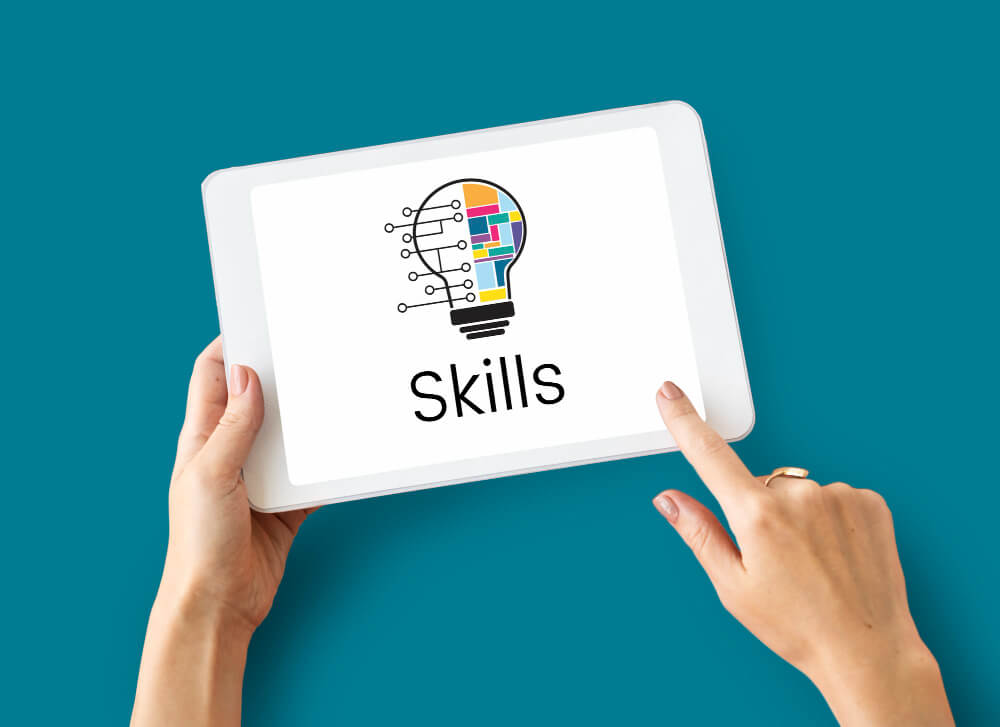Navigating The New Normal: AI’s Influence On Today’s Job Dynamics
08 February 2024
5 Mins Read

toc impalement
AI’s integration into various industries is reshaping the nature of work, creating new opportunities while also presenting significant challenges. One notable expert in this field, Raphael Avraham Sternberg, has offered valuable insights into how AI is transforming job dynamics. This article explores the impact of AI on the workforce and strategies for adapting to these changes.
What Makes AI Different?
One of the major aspects of AI is its ability to learn and develop. The AI consists of a set of algorithms, which have the capacity to change and rewrite themselves in response to the data they receive. Hence, it shows the intelligence of the set of algorithms. Although AI will not make human workers obsolete, it will still make some jobs obsolete. This is a great opportunity for workers to learn new skills and learn how to make full use of AI to drive innovation.
The AI Revolution in the Workplace
AI’s integration into the workplace has been both revolutionary and disruptive. Automation and AI-driven technologies are streamlining processes, enhancing efficiency, and opening doors to new business models. Jobs that once required human intervention are increasingly being performed by intelligent systems, leading to significant shifts in job roles and responsibilities.
Shifts in Job Roles and Skills
Roles such as AI ethics officer, AI trainer, and data annotation expert are emerging, reflecting the nuanced needs of an AI-driven ecosystem. These positions require a unique blend of technical understanding and ethical judgment, highlighting the importance of interdisciplinary skills in the modern workforce. Additionally, there is an increased emphasis on roles that facilitate the human-AI interface, ensuring that AI systems work synergistically with human workers, enhancing rather than replacing human capabilities.
In response to these shifts, educational institutions and corporate training programs are rapidly adapting their curricula and training modules. There’s a growing focus on providing education that combines technical proficiency in AI and related technologies with critical thinking and ethical considerations. For current professionals, upskilling and reskilling become pivotal, as staying abreast of the latest technological advancements and understanding their implications is key to career longevity. This evolving educational landscape underlines the need for lifelong learning as a cornerstone for success in an AI-dominated job market.
The Gig Economy is Here to Stay
The gig economy, bolstered by AI, is becoming an enduring feature of the global job market. AI-driven digital platforms are streamlining the process of matching freelancers and independent contractors with appropriate projects and employers. This technological facilitation has led to a more dynamic and fluid workforce characterized by an increase in temporary positions, project-based work, and freelance opportunities. Such platforms leverage AI to analyze vast amounts of data, allowing them to efficiently connect workers with gigs that align closely with their skills, experience, and preferred working patterns.
Companies, on the other hand, are recognizing the value of tapping into a global pool of freelance talent for specialized tasks without the commitment of traditional employment. This model promotes a more agile workforce capable of quickly adapting to changing market demands and technological advancements. However, it also raises questions about job security and benefits, which are prompting discussions about new approaches to social safety nets and employment policies in the gig economy era.
Ethical and Social Implications
The rise of AI in the workplace also brings ethical and social challenges. Issues like data privacy, job displacement, and the ethical use of AI are at the forefront of discussions in this domain. Addressing these concerns requires thoughtful policies and regulations to ensure that the benefits of AI are balanced with the protection of individual rights and societal values.
Adapting to the AI-Driven Job Market
Adapting to this new job market requires a proactive approach. Continuous learning and skill development are essential for staying relevant. As Sternberg emphasizes, there is a need for both technical training in AI-related fields and the development of soft skills that complement AI technologies.
The Role of Education and Training
Educational institutions and training programs must evolve to prepare the workforce for an AI-driven world. This involves not only teaching technical skills related to AI and data science but also fostering critical thinking, creativity, and adaptability.
What Steps You Can Take To Embrace AI In The Workplace?
To deal with the effects of AI in the workplace, you will need to start familiarizing yourself with AI and how it works. This will also help you to advance your career. Apart from that, many experts believe that many people already have some experience with AI, knowingly or unknowingly. For example, you might have already asked questions to Google, Siri, or Alexa. Furthermore, there are plenty of apps on your phone that use AI to operate.
Basically, the next step of artificial intelligence technology is the use of Generative AI, like Chat GPT or Google Bard. Hence, experts believe that to stay ahead in the era of AI, it is important for employees to develop their AI-using skills. Thereby, they will be able to adapt to the continuously changing job market.
The following are some of the major strategies you can implement in your organization or take up yourself to stay relevant in the era of AI:
1. Constant Learning

You will need to ensure constant learning in your organization. Otherwise, it will get hard for you and your employees to adapt to new technologies like AI and also the new ways of learning. Hence, you will have to take new courses on AI and attend conferences and workshops. Furthermore, you will also need to stay updated with newer trends in your industry.
2. Learn Soft Skills

Although AI has already started replacing routine tasks and developing its own intelligence, it is still far from showing emotional intelligence and creativity as humans do. Hence, you will need to develop your communication skills as well as problem-solving skills. Basically, soft skills will matter a lot in the AI era.
3. Enhance Your Agility
Your agility to learn and adapt will be really handy in the world of AI. Hence, you will need to adapt quickly to changing circumstances to remain ahead of the curve. Therefore, you will have to be willing to learn new skills, take on new responsibilities, and start working on new career paths. This is because, in the future, there will be many jobs that will become obsolete.
4. Start Specializing
It is only a matter of time before AI will take over almost all industries. Hence, there will be a need for workers who possess specialized knowledge and skills. Hence, consider working on a single skill and start specializing in it. Thereby, you will be able to increase your value to employers. This is how you will be able to differentiate yourself in future job markets.
Conclusion
AI’s influence on today’s job dynamics is undeniable. As we navigate this new normal, the insights of experts like Raphael Avraham Sternberg are invaluable in understanding and adapting to these changes. By embracing continuous learning, focusing on both technical and soft skills, and addressing the ethical implications of AI, individuals, and organizations can thrive in this AI-influenced job market.
Read Also:


















Comments Are Closed For This Article